Campus Life
Scientists assess paths toward maintaining BC caribou until habitat recovers
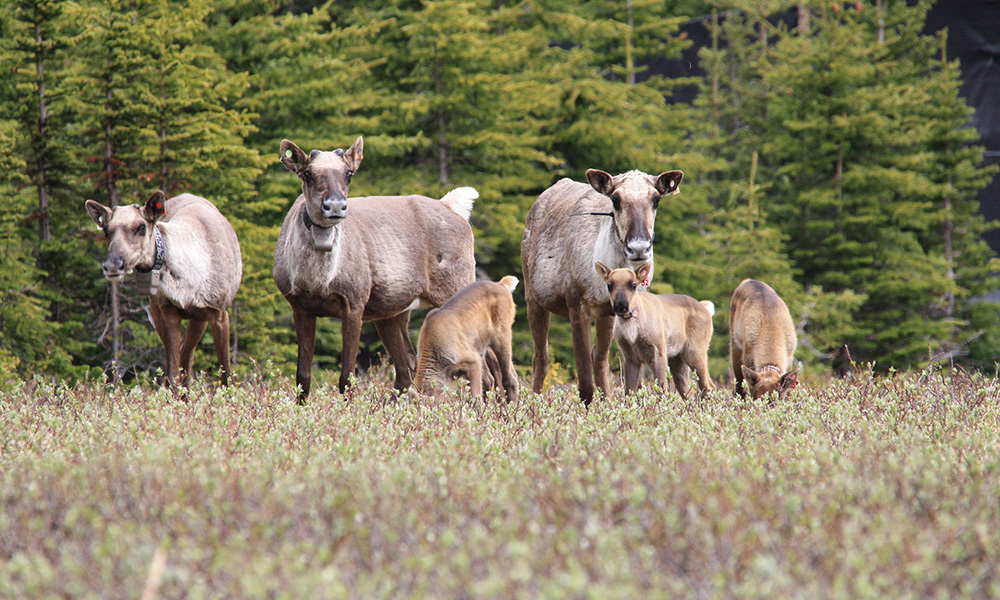
New research from UBC Okanagan's Dr. Clayton Lamb examines how to preserve southern mountain caribou populations until the animal's habitat can sustain greater numbers. Photo credit: Line Giguere/Wildlife Infometrics.
Thanks to drastic and evidence-based solutions, more southern mountain caribou roam Western Canada today than in previous decades; however, herd numbers are too fragile to sustain themselves without continued intervention.
That begins the conclusion of a new research paper published in Ecological Applications on Thursday by a team of wildlife and biodiversity researchers led by Dr. Clayton Lamb, a postdoctoral fellow at UBC Okanagan and Wildlife Scientist at Biodiversity Pathways.
"We did this analysis with full understanding and agreement that habitat loss is the primary driver of caribou declines," says Dr. Lamb. "But the reality is that habitat restoration, even once complete, will take decades to produce the mature forests and low predator densities caribou need to survive. In the meantime, we need evidence-based actions to sustain caribou while we expedite habitat conservation and restoration."
Researchers found that while caribou have declined dramatically over the past few decades, there are 52 per cent (or less than 1,500) more caribou on the landscape than if no recovery actions had been taken.
Southern mountain caribou are among the most threatened large mammals in Canada. The ultimate reason for caribou decline is human-caused habitat loss and increased predation. It's thought that it will take decades to restore enough habitat for populations to recover, and the outcomes of restoration are still unknown.
Across BC and Alberta, managers have tried maternal penning, supplemental feeding, translocation and reducing predator density to help stabilize caribou populations.
"Caribou declines have been drastic, and the actions required to keep them from completely disappearing have had to be bold, and many have been understandably contentious," says Dr. Lamb. "Our task was to assess whether and how these recovery actions have helped southern mountain caribou in their struggle to survive."
Researchers from across BC and Alberta pooled and analyzed over 50 years of data on the species, using population estimates from aerial surveys and information on caribou mortality from collared animals.
Though the earliest data comes from 1973, data collection began for most populations after 1991. The team found that the southern mountain caribou abundance declined by 51 per cent between 1991 and 2023. Still, without recovery actions, the decline would have been even more significant.
“We have 1,500 more caribou than we would have had without these actions," says co-author Dr. Rob Serrouya, Co-Director of the Wildlife Science Centre with Biodiversity Pathways. "There is strong evidence that predator reductions have increased caribou populations and avoided further caribou extirpation events. We've seen this increase under current levels of climate change; high levels of habitat loss also contribute.
"Actions such as maternal penning and supplemental feeding were most effective when coupled with predator reduction. Other actions, such as prey reduction, wolf sterilization or translocations, had a lesser impact."
Researchers from both UBCO and Biodiversity Pathways analyze and report on the status of caribou populations, offering clear data to inform the conversation on conservation efforts and support the best outcomes for ecosystem health.
The post Scientists assess paths toward maintaining BC caribou until habitat recovers appeared first on UBC Okanagan News.
BC interior universities extend collaboration to advance research, innovation
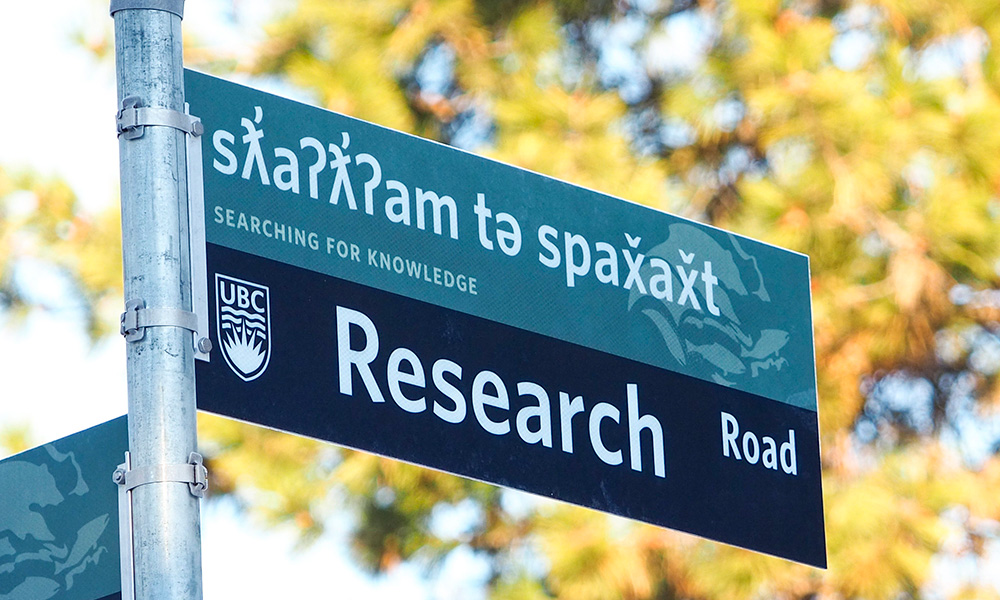
UBC Okanagan, TRU in Kamloops, and UNBC in Prince George have renewed an MOU to foster collaborative research based in the BC interior.
British Columbia’s three interior universities have strengthened their commitment to research and innovation by extending their partnership with the Interior Universities Research Coalition (IURC).
The University of Northern British Columbia (UNBC), Thompson Rivers University (TRU) and the University of British Columbia's Okanagan campus (UBCO) announced on Thursday they've renewed their Memorandum of Understanding for an additional five years.
"We're eager to continue collaborating with our research colleagues in the BC Interior to drive discovery and innovation further," says Dr. Philip Barker, UBCO's Vice-Principal and Associate Vice-President of Research and Innovation.
"Each of the IURC institutions brings research specialties and strengths to this agreement?that create connections and maximize the partnership’s benefit?for BC interior communities and industries."
Since its inception in 2017, the IURC has boosted research initiatives throughout the BC interior. The coalition has secured nearly $8 million in funding for joint research projects and fostered collaboration between the universities.
Projects have tackled pressing regional issues such as disaster prevention, rural aging, COVID-19 effects, education and wildlife stewardship.
"The IURC has set the groundwork to advance important research in our regions--the collaboration between our institutions is critical in building capacity for new research opportunities in our communities," says Dr. Shannon Wagner, TRU's Vice-President of Research.
"The renewal marks the beginning of what we envision as a blueprint towards inter-institutional partnerships across Canada, inspiring a future where collaboration paves the way for discovery and growth."
The IURC’s next phase will focus on community-based research, expanding research capacity, developing shared educational opportunities and building upon the successes of the past five years. This partnership fosters talent, increases student and faculty mobility, and strengthens connections to communities across the region.
"The IURC facilitates partnerships among scholars at all three institutions. They work with community partners to identify solutions to pressing issues in our region and beyond. The knowledge generated through these projects builds capacity for healthy, productive and thriving interior communities," says Dr. Paula Wood-Adams, UNBC's Vice-President of Research and Innovation.
"We support this initiative and share the IURC's commitment to making post-secondary education more accessible, responsive, and relevant for people across British Columbia. The IURC is a leading example of institutions finding collaborative solutions to enhance educational opportunities and solve regional challenges so we can build stronger and more resilient communities in B.C."
-- Minister Lisa Beare, Ministry of Post-Secondary Education and Future Skills
"B.C.'s post-secondary institutions and research centres are world-class, and this continuing collaboration ensures our province draws and retains the talent needed to drive innovation to make life better for people, and to create good jobs. Through the B.C. Knowledge Development Fund and other provincial programs, our province is supporting our post-secondary research infrastructure and we're looking forward to hearing more from the partnership."
-- Minister Brenda Bailey, Ministry of Jobs, Economic Development and Innovation
The IURC is a dynamic partnership between UNBC, TRU, and UBCO, designed to enhance research and innovation ecosystems within the BC interior. Learn more at IURC.ca.
The post BC interior universities extend collaboration to advance research, innovation appeared first on UBC Okanagan News.
"Peachland Andrews" team triumphs at UBCO's revived Live Case Challenge
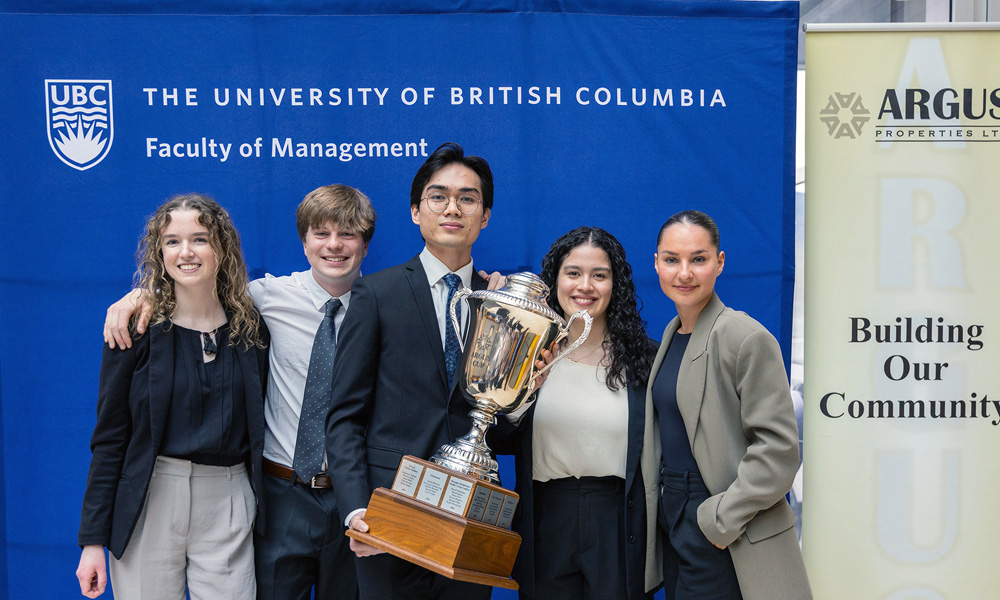
The Peachland Andrews team of Kelly Robinson, Philip St-Cyr, Chloe Bank, Bao Thai and Callia Babin won the $8,000 Live Case Challenge and hoisted the Argus Cup in the UBCO Faculty of Management business simulation.
With a focus on collaboration, the Peachland Andrews team--comprised of UBCO Faculty of Management students Kelly Robinson, Philip St-Cyr, Chloe Bank, Bao Thai and Callia Babin--won the 2024 Live Case Challenge, the Argus Cup and $3,500 of the $8,000 total prize money.
UBC Okanagan's Faculty of Management, in collaboration with Argus Properties Ltd., hosted the annual Live Case Challenge event, a comprehensive business challenge for over 230 students.
Teams tested themselves against a dynamic online business simulation. The simulation immersed students in a competitive marketplace where they operated virtual sensor-manufacturing companies. Over seven simulated years, teams had to strategically allocate resources to target markets and make cross-functional decisions in finance, marketing, strategy and operations.
Shifting customer preferences, a recession, competitive pricing and product decisions provided continuous challenges. The Live Case Challenge highlights the value of partnerships with regional organizations in fostering a thriving business community.
"We're thrilled to bring the Live Case Challenge back for its 10th year," said Sandy Hilton, Dean pro tem with the Faculty of Management. "This year’s innovative simulation format provided an exceptional experiential learning opportunity. Students experimented, explored strategies and received instant feedback, leading to critical thinking and innovative solutions. It was inspiring to see the enhanced collaboration, communication and strategic thinking in action."
In today’s rapidly evolving job market, Live Case Challenge plays a vital role in equipping students with the skills and knowledge they need to succeed. By partnering with industry leaders like Argus Properties Ltd., UBC Okanagan can bridge the gap between theory and practice, offering students invaluable real-world experience.
"I am truly excited to champion our support for the community and education, particularly the invaluable significance of UBC’s Okanagan campus," said Dallas Gray, Manager of Business Development and Leasing at Argus Properties Ltd. "The opportunity for students to engage with the Live Case Challenge is incredibly promising, as they are the future business leaders of the Okanagan. My heartfelt congratulations go out to these aspiring minds for their dedication and efforts."
"Facilitating the simulation was incredibly rewarding," said Faculty of Management Lecturer Jana Martin. "Watching students strategize, adapt to real-time feedback, and embrace the competitive aspect was inspiring. Their high engagement reflects the impactful learning experience, blending strategy, teamwork, and networking within the business community.”
"This year's Live Case Challenge was a lot of work, but the quality of student engagement made it all worthwhile," added Hilton. "We are already looking forward to next year’s event. These types of learning experiences are key to helping students apply knowledge while building their skills effectively. We're very grateful for Argus' long-term support for this important initiative."
The post “Peachland Andrews” team triumphs at UBCO's revived Live Case Challenge appeared first on UBC Okanagan News.
Is climate change a time for ingenuity or urgent action?
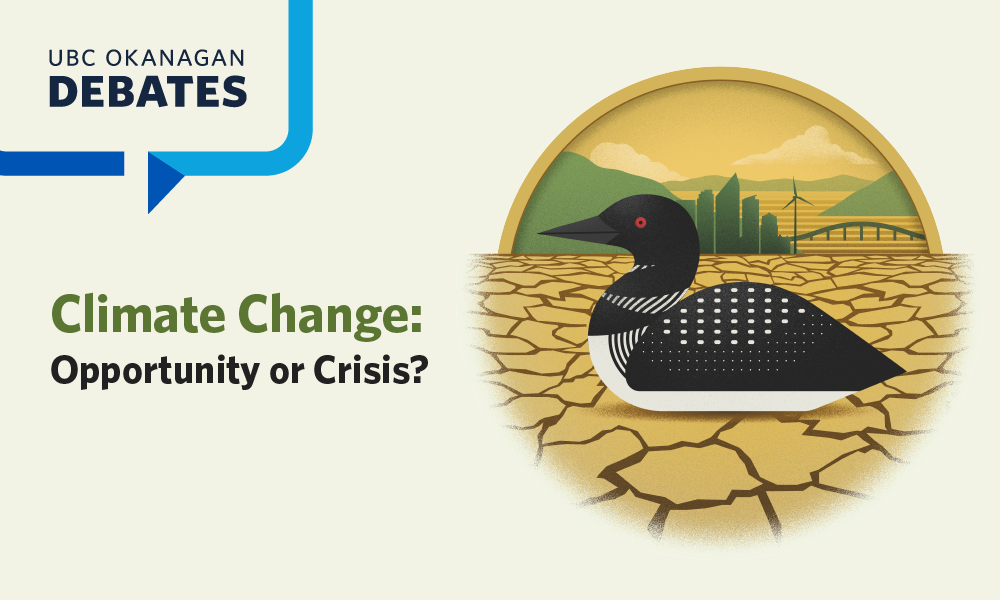
UBC Okanagan Debates is back with a timely and highly complex topic--climate change.
After the past few extremely hot summers and drought-ridden winters, the question is no longer whether climate change exists or not. Indeed, debaters in UBCO's upcoming event are faced with the topic of how to best respond to climate change.
Is it an opportunity to seize? Or a crisis to manage?
The Okanagan is on the front lines of climate change, and the impacts on our communities are all too clear, explains Dr. Lesley Cormack, Principal and Deputy Vice-Chancellor at UBC Okanagan. What's less clear, she notes, is the best way forward.
"Delving into how we should respond to climate change--collectively and individually--is a timely and important debate," says Dr. Cormack. "Do we focus on the emergency actions needed to slow or reverse the pace of change or look to the economic and social opportunities of a new normal? Either way, the audience will be challenged to deepen their understanding of all that goes into such a complex topic."
Four leading thinkers will take the stage on Wednesday, May 15 to make their arguments for their side of the climate change debate.
The resolution before the debaters is:
Be it resolved:
Is climate change an opportunity to harness? Should communities see climate change as an opportunity to explore creative solutions? Will those solutions spark hope and ingenuity, especially around green technologies and creative funding sources?
Or, is climate change a crisis? Communities across Canada have already been devastated by fires, floods and ecosystem collapse. Is now the time to act, perhaps by sacrificing some personal freedoms for the collective good?
Speaking on the side of opportunity will be Dr. Ross Hickey a Public Economics Researcher at UBCO and Shauna Sylvester, Lead Convenor with the Urban Climate Leadership.
Debating that the current climate situation is a crisis to manage will be Carol Liao, an Associate Professor in UBC's Allard School of Law who is an expert on corporate law and sustainability, and Brett Favaro, a scientist and Dean of the Faculty of Science at Kwantlen Polytechnic University.
"This debate will challenge our audience to consider if our efforts and resources are better spent in an existential battle against greenhouse gases or in finding ways to prioritize human resilience and economic evolution," says Marten Youssef, Associate Vice-President of University Relations at UBCO. "We encourage our community to join us as we challenge our priorities, inspire out-of-the-box solutions, and guide our community's path toward a sustainable and resilient future."
UBCO's third debate takes place Wednesday, May 15 at the Kelowna Community Theatre, 1375 Water St., beginning at 7 pm. This is a ticketed event with reserved seating. Each ticket costs $8, additional fees apply.
For more information and to buy tickets, visit: ok.ubc.ca/ubc-okanagan-debates.
The post Is climate change a time for ingenuity or urgent action? appeared first on UBC Okanagan News.
Exceptional faculty members celebrated as 2024's Researchers of the Year
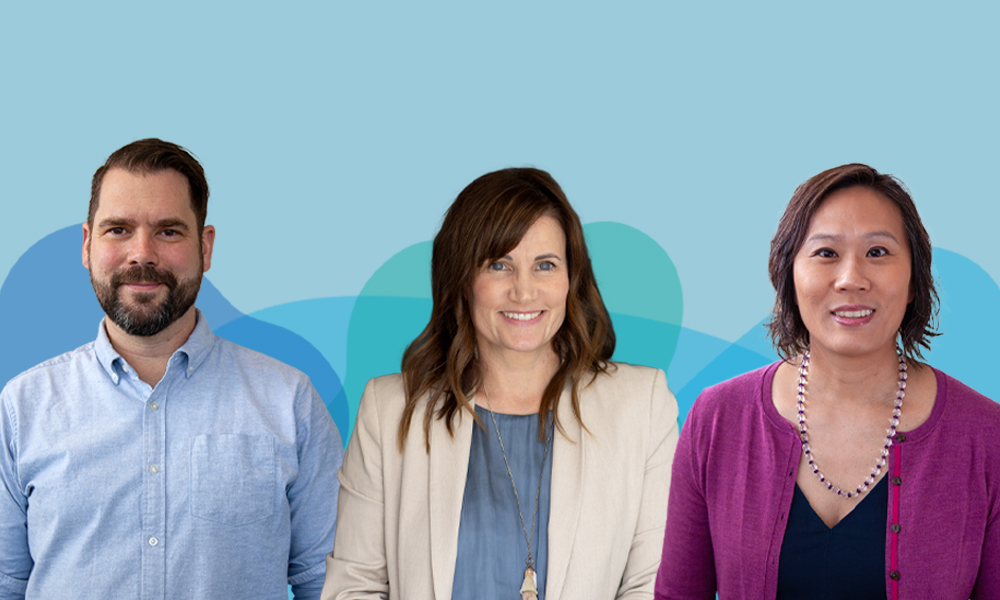
Drs. Adam Ford, Lesley Lutes and Wendy Wong have been named UBCO's researchers of the year.
UBC Okanagan is celebrating three inspiring faculty members whose research is making a difference on some of the most pressing issues in society.
The prestigious Researcher of the Year awards recognize individuals who are making the world a better place through excellence in research and scholarly activity.
Three outstanding faculty members have been honoured: Dr. Adam Ford for natural sciences and engineering research, Dr. Lesley Lutes for health research and Dr. Wendy Wong for her research in the fields of social sciences and humanities.
Dr. Adam FordDr. Ford is an Associate Professor in the Irving K. Barber Faculty of Science, and studies how humans affect predators and prey, as well as the interactions between the two. His Wildlife Restoration Ecology (WiRE) Lab often supports Indigenous-led conservation and restoration and works with communities and governments to directly affect wildlife in the field.
Dr. Ford's study on chronic wasting disease--a fatal disease that affects the brain, spinal cord and other tissues of deer, elk and moose--identified areas where the disease could cross borders and infect BC's deer populations. As a result, the BC government changed its areas of mandatory testing. When chronic wasting disease was first detected in the province in early 2024, it was in one of the very hot spots Dr. Ford's lab had identified.
Being named Researcher of the Year is an honour, he says, that is due to years of hard work from not just him, but everyone in the WiRE Lab.
"This recognition is a testament to the hard work of my students and staff, and the trust our partners have put in us. We're tackling problems that matter to people, and we're making a difference."
Dr. Lesley LutesA Registered Psychologist and Professor of Psychology in the Irving K. Barber Faculty of Arts and Social Sciences, Dr. Lutes has become an advocate for increased public access to evidence-based mental health care in BC.
Her work includes the creation of the first-ever public walk-in mental health clinic on a BC university campus at UBC Okanagan, and the expansion of psychological services into the school's student health clinic.
Currently, Dr. Lutes is working with the provincial government in hopes of completing a proof of concept for integrating psychologists into primary care practices to treat physical and mental health together, a model that's shown significant success in improving health outcomes.
"This award is a reminder of the power that science can have in advancing meaningful change," says Dr. Lutes. "The research is clear that giving people access to effective mental and behavioural health services for things such as anxiety, depression and obesity saves time, money and lives. My hope is that by continuing to put the science of mental and behavioural health front and centre, that policy change and appropriate financial investments will follow."
Dr. Wendy WongIn an increasingly digital world where data and artificial intelligence (AI) seem to progress by leaps and bounds every week, Dr. Wong calls for extending human rights into the digital sphere.
A Professor of Political Science in the Irving K. Barber Faculty of Arts and Social Sciences, she notes this major technological disruption can have significant effects on people's lives and wants to help people better understand the implications of AI, including its inherent human biases. She advocates for government and technology creators to be aware of, and responsive to, the potential harms of AI and increasing digital data.
"I'm hoping that the more I talk about data and human rights, the more people will start thinking about technology differently. These AI technologies have been created by people who haven't been forced to think about the social and political ramifications of their inventions. Now we have to do that."
This year marks the 19th annual Researcher of the Year award at UBC Okanagan and Dr. Phil Barker, Vice-Principal and Associate Vice-President, Research and Innovation, says he is continually impressed by the research taking place at UBCO.
"Every year I am inspired by the incredible researchers working at our campus," says Dr. Barker. "This year's Researcher of the Year recipients are addressing critical challenges in our society, from biodiversity to mental health to artificial intelligence. Their research leadership and innovative approaches to complicated problems are advancing their fields and are having important impacts locally and globally.
The post Exceptional faculty members celebrated as 2024's Researchers of the Year appeared first on UBC Okanagan News.
"Breast is best" but often isn't the easiest option to feed a newborn
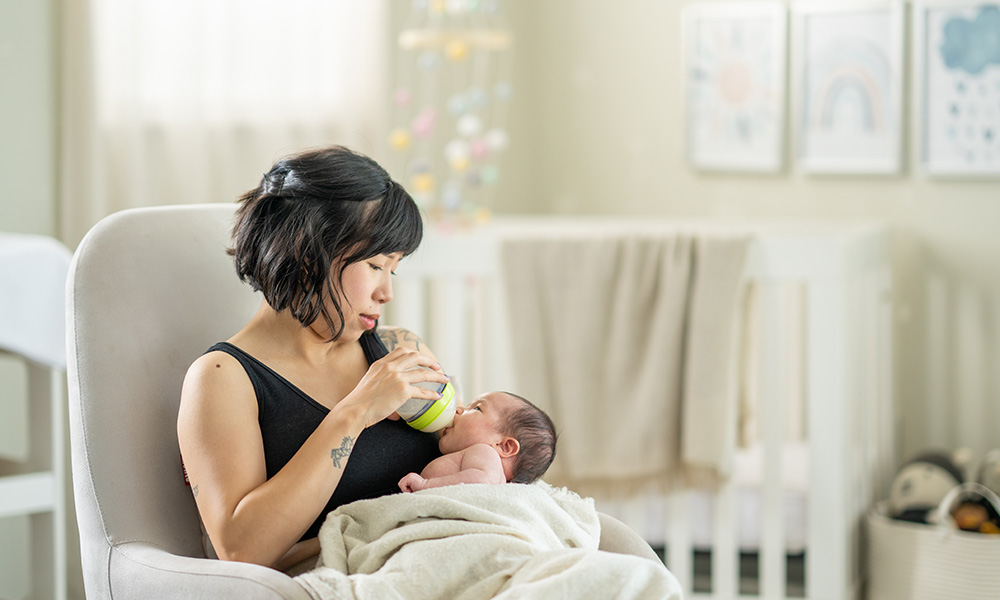
A UBCO researcher is studying why many new mothers choose to feed their infant expressed breast milk.
While health-care professionals and researchers have long maintained that direct breastfeeding is the most healthy choice for infants, it is not always possible for many new mothers.
Dr. Heidi Sze Lok Fan, a postdoctoral researcher with UBCO's School of Nursing, recently published a study that describes the benefits and struggles of expressing breast milk--and the impacts not only on the infant but also the mother.
Dr. Fan conducted much of her research in Hong Kong and says until recently, maternity leave was limited to 10 weeks. It has now been extended to a 14-week leave, and Dr. Fan says Chinese mothers are ideal candidates to study when it comes to expressing milk because they often return to work when the infant may still be relying solely on breastmilk.
"Along with a short maternity leave, new mothers also have a one-month confinement after delivery where they are expected to stay at home with their infant," she explains. "They usually don’t go out of the home except to visit a health clinic, so during those first few weeks more than 90 per cent of their time is at home with their baby."
During this confinement time, it is expected they develop a breastfeeding routine. For her study, Dr. Fan interviewed new mothers at 1.5 months postpartum.
"We thought this might be an ideal time as mothers spend most of their time at home with the baby and can have direct breastfeeding as they do not need to go out often or return to work," she explains. "However, these mothers chose to feed their baby with expressed breast milk. This study looks into their reasons for choosing expressed breast milk feeding and their experiences."
Most mothers choose to express their milk because they are having difficulties breastfeeding. Other women start expressing breastmilk as they try to establish a routine for when their maternity leave ends.
"In Hong Kong, the breastfeeding initiation rate is high at more than 84 per cent," she says. "However, sustaining breastfeeding poses challenges, and less than one-half of new mothers continue to breastfeed their children at six months postpartum."
Dr. Fan also points to previous research that shows almost 85 per cent of breastfeeding women expressed milk at some point during the first six months postpartum and about 15 to 20 per cent exclusively feed their child expressed milk.
"Understanding the experiences of a new mother who has high levels of expressed milk feeding may help to identify how this is associated with breastfeeding duration," she says. "Understanding the experiences of those who feed expressed milk may also help improve breastfeeding support strategies."
Previous research conducted by Dr. Fan followed women who had just given birth. They were recruited shortly after delivery and were followed for about six months. This second research paper, published recently in Sexual and Reproductive Healthcare, stems from qualitative interviews with those participants and examines why they express and how they feel about it.
"We do find that expressing milk does give many women a greater sense of control, especially for time management, because the infant's feedings can be scheduled. With expressed milk, a woman can have more freedom, allowing family members to feed the baby. And that also helps with the preparation of returning to work."
Many women also said that knowing the amount of milk an infant consumed during a feeding, and having a stored milk supply ready at any time, provides a sense of security. However, expressing doesn't come without complications. Specialized equipment is needed and studies have shown more health problems for infants not fed directly from the breast including ear infections, asthma and rapid infant weight gain.
Dr. Fan notes many parents who have expressed milk have a shorter breastfeeding duration as they tend to stop breastfeeding earlier than parents who do not express milk. She also says that breastfeeding women need support and, she would like to see an improvement in strategies provided by health-care professionals to support post-partum women.
"We know that direct breastfeeding is the best option, and that expressed breastfeeding is still better than providing the infant with formula," she adds. "That's why it is crucial to strengthen the breastfeeding support programs provided in the early postpartum period to ensure that all breastfeeding women can feed directly for as long as they choose."
The post "Breast is best" but often isn't the easiest option to feed a newborn appeared first on UBC Okanagan News.
Diabetes prevention program rolls out across Canada
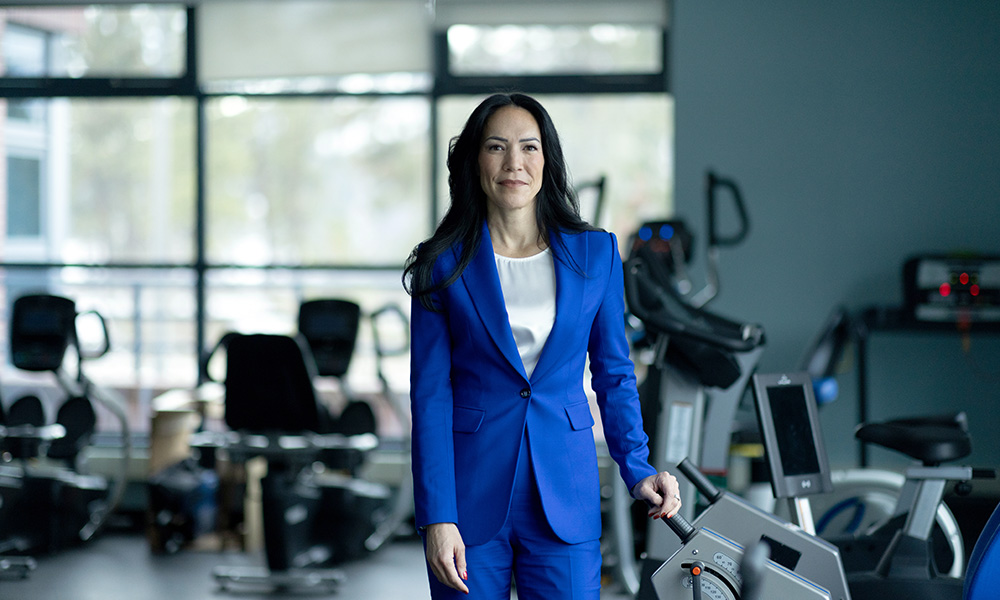
UBCO Professor Mary Jung's Type 2 diabetes prevention program Small Steps for Big Changes is being rolled out across Canada. The program is also available in Portugal and will soon be running in Australia.
Thousands of Canadians with prediabetes will soon be able to sign up at participating YMCAs for a diet and exercise counselling program proven to lower their risk of developing Type 2 diabetes.
The program, Small Steps for Big Changes, currently delivered at select YMCAs in BC, is poised to expand to more YMCAs across Canada and Australia. By the end of 2025, the program is expected to be available at more than 40 YMCA locations across eight provinces in Canada. In the same time frame, the program will grow globally beyond its current YMCA locations in Portugal to include four new locations in Queensland, Australia.
The scale-up of Small Steps for Big Changes is the result of a tried-and-tested partnership between YMCA Canada, Diabetes Canada and UBC researchers. Dr. Mary Jung and her Diabetes Prevention Research Group based at UBC's Okanagan campus, with support from Diabetes Canada, designed the program based on evidence from close to a decade of clinical trials on behaviour change. YMCA locations in BC's Okanagan region then offered the ideal real-world setting to pilot the program for people at risk of Type 2 diabetes.
"One in eight Canadians are at risk of Type 2 diabetes and we know that up to 80 per cent of Type 2 diabetes cases are preventable by adopting healthy behaviours," says Dr. Jung. "The goal of Small Steps for Big Changes is to help as many Canadians as possible make this change. The YMCA, by virtue of its many locations across Canada and commitment to inclusiveness, is helping us make a giant leap forward."
The program is offered at no cost to participants thanks to the funding of the Canadian Institute of Health Research, the Public Health Agency of Canada and Australia's National Health and Medical Research Council. Participants receive access to the YMCA for one month, plus six one-on-one sessions with a YMCA coach specifically trained to deliver the program. Each session includes a discussion on nutrition and physical activity followed by up to 30 minutes of supervised exercise. Coaches use a person-centred approach to help participants commit to their health changes.
"Small Steps for Big Changes aligns with the YMCA philosophy that we all have it in us to shine, but sometimes we just need a supportive coach and environment where we feel like we belong to take the first step, and the ones after that," says Peter Dinsdale, President & CEO of YMCA Canada. "We are excited by this partnership because it reflects our goal to positively impact the health of individuals and families in an inclusive and sustainable manner, while reducing financial barriers."
The cross-Canada rollout of Small Steps for Big Changes comes just as Diabetes Canada launches its new six-year research strategy, which, among other objectives, aims to maximize the real-world impacts of diabetes knowledge and solutions.
"Every three minutes someone in Canada is diagnosed with diabetes. It's an alarming statistic that demands urgent action," says Dr. Rachel Reeve, Executive Director of Research and Science at Diabetes Canada. "Investing in research is a priority for Diabetes Canada because we see so clearly how new knowledge and solutions can benefit people with diabetes or people at high risk of developing this complex chronic condition. Small Steps for Big Changes is an example of successful diabetes research being applied to new communities across Canada."
Small Steps for Big Changes accords with the Government of Canada's Framework for Diabetes in Canada released in 2022, in particular the aim of supporting improved access to Type 2 diabetes prevention, as well as the principles of addressing health equity, applying a person-centred approach, supporting innovation and promoting leadership, collaboration and information exchange.
To determine eligibility for the program and to find a participating YMCA location people can visit www.smallstepsforbigchanges.com.
The post Diabetes prevention program rolls out across Canada appeared first on UBC Okanagan News.
Major gift from BMO to support community progress is worth smiling about
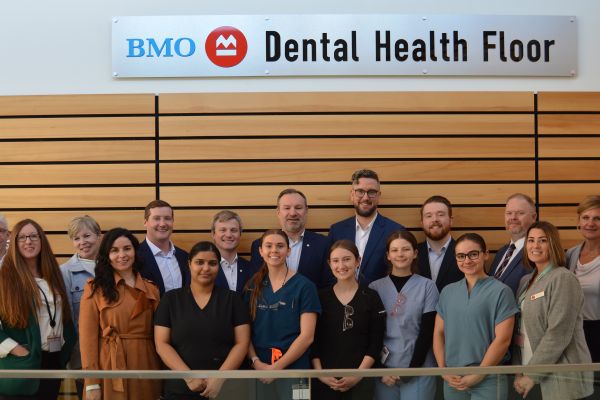
A major gift from BMO will support community dental care while making it easier for more people to train to become in-demand Certified Dental Assistants (CDAs).
BMO is giving $250,000 to Okanagan College’s (OC) Our Students, Your Health campaign in support of the CDA program. OC’s state-of-the-art dental suite, used for training and as a community clinic, will receive $150,000. An additional $100,000 will be used to kickstart a hands-on learning pilot program that will enable people to become CDAs while they continue to work.
In recognition of their generous donation, the third floor of OC’s Health Sciences Centre is named the BMO Dental Health Floor.
“We’re beyond grateful to BMO and its commitment to supporting a healthy community,” said Helen Jackman, executive director of the Okanagan College Foundation. “Their generous gift helps us educate students and explore innovative ways to deliver programming. We’re thrilled that BMO’s gift will make it easier for more people to choose a career path as a certified dental assistant.”
According to the BC Dental Association, CDAs are in high demand across British Columbia with an estimated 800 current openings. After hearing from dentists that it can be difficult to lose their current assistants to a 10-month traditional CDA program, OC decided to create a hands-on learning program that will enable students who are unable to take the traditional program the opportunity to gain their CDA credential and license while continuing to work.
“This gift will remove barriers to education and support greater access to quality dental care, helping our employees, our customers and communities we serve,” said John Duff, regional vice president, BC and Yukon Region, BMO.
“BMO has a long-standing record of supporting community organizations providing important health and education services. This gift is one way we’re working to Boldly Grow the Good in business and life, working with partners like Okanagan College’s Our Students, Your Health campaign to make progress for a thriving economy, sustainable future, and inclusive society.”
The new program will especially help those in outlying regions have access to education and training and provide employers the ability to keep their employees working while supporting them in advancing their career goals.
BMO’s gift is part of an ongoing successful fundraiser to support the demand for more CDA education. More than 90 Okanagan dental clinics have donated their precious metals and cash to the OC Foundation, making it possible for Okanagan College to educate an additional 24 CDA students in the 2023-2024 year.
“We want to acknowledge and celebrate the impact our dental community is making on students,” added Jackman. “Their incredible support, along with BMO, is removing barriers to education so more students can learn in-demand skills and find rewarding careers.”
A key part of the pilot program will be to develop a sustainable funding model to continue the program and serve the local dental community.
To learn more about the new hands-on learning program and fundraiser, click here.
Enactus Okanagan College shines at regional competition??
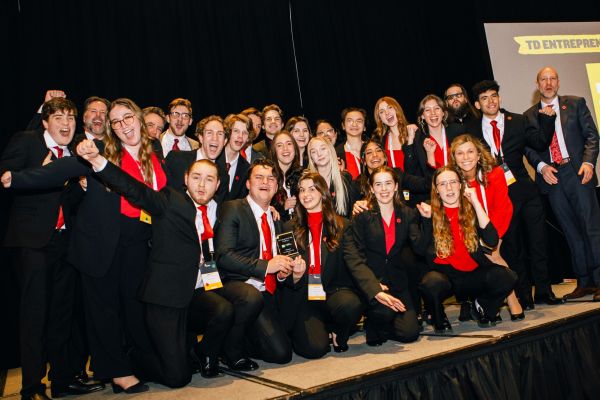
Okanagan College School of Business students representing Enactus Okanagan College (EnactusOC) achieved four podium finishes at a recent Enactus Canada Regional Exposition. ?
? For Rebekah Dingwall, an OC student and the EnactusOC President, the competition was an opportunity to showcase her skills and make a positive impact on her community. ??
"I'm deeply grateful for the opportunity to work alongside such a remarkable team of students, faculty, alumni and community partners,” said Dingwall. “The success of our team at the Enactus Regional competition is a testament to the collective efforts and the positive impact these students have made in the community with their amazing projects.” ??
The Enactus Canada Regional Exposition was held in Calgary on March 14 and 15, 2024. With 16 teams across four provinces in Western Canada competing for top placements in four Impact Challenges, the EnactusOC team secured podium finishes in every category. ??
“Watching the OC Business students present their social entrepreneurial projects to the judges at the Enactus Regionals was strong evidence that Okanagan College is preparing our students for success,” said Joe Baker, Dean, School of Business. “The talented faculty team and coaches helped OC shine in the spotlight as our teams made the podium in every category. These competitions are platforms for OC to continue to position itself as the market leader in business education in Canada.“??
EnactusOC's success was evident, with each team making significant strides towards creating positive social and environmental impact. Among notable achievements were the following community outreach projects:??
Project Bee:??
- Result: 2nd place in the Impact and Innovation Challenge??
- Students: Katalin Csorba, Linden Webster-Krist, Seirian Major??
- Coaches: Todd Gillick, Brad Steinbart??
Project: Promoting bee conservation through education and habitat restoration, with initiatives including classroom activities and establishing beehives.??
Flour:??
- Result: 1st place in the Canadian Tire Environmental and Sustainability Challenge??
- Students: Mackenzie Friesen, Gurnoor Johol, Elias Rojas, Kayla Warner, Reece Lequilloux??
- Coach: Dr. Danielle Robinson??
Project: Creating gluten-free apple flour from pomace waste, contributing to environmental sustainability and reducing CO2 emissions.??
Unusually Good Hard Cider:??
- Result: 3rd place in the TD Entrepreneurship Challenge??
- Students: Kaitlin Senko, Josh Smith, Andrew Lowken??
- Coaches: Dr. Kyleen Myrah, Mark Ziebarth??
- Project: Addressing food wastage by converting discarded apples into hard cider, while educating consumers and entrepreneurs about social entrepreneurship.??
?
Revive:??
- Result: 3rd place in the Desjardins Youth Empowerment Challenge??
- Students: Michaela Dew, Luke Howe, Ryan Rubadeau, Lorreine Stanley??
- Coaches: Devin Rubadeau, Dean Warner??
- Project: Developing an engaging curriculum on renewable energy for middle school students, fostering STEM skills and environmental awareness.??
“We’re extremely proud of how our team worked together with community partners to identify and take action on the opportunity for environmental circularity within EnactusOC’s Unusually Good Food Co.,” said Dr. Danielle Robinson, Faculty Advisor and Coach for the Sustainability team. “The team is honoured by their success at the Regional competition and look forward to sharing the story of their innovative gluten-free apple flour and their zero-waste social enterprise with a national audience in Toronto later this spring.”??
EnactusOC will advance to the National competition in May, where they will compete in the Impact Challenge final round and showcase their projects on a national stage.??
EnactusOC is a non-profit organization that enables value-driven student leaders to form connections, build confidence and positively impact local communities through social, economic and environmental projects.?For more information about Okanagan College’s Enactus program, visit enactusoc.ca.
Unleash your potential: Okanagan College invites community to "Try a Trade"
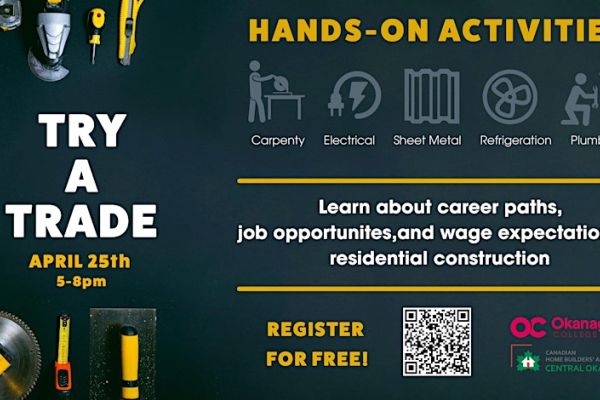
Are the trades for you? Have you ever felt the call of a different career path? Are you curious about trades but unsure where to start? Look no further!
Okanagan College (OC), in partnership with the Canadian Home Builders’ Association – Central Okanagan (CHBA-CO), is thrilled to announce its upcoming "Try a Trade" event, inviting all eager learners and aspiring tradespeople to explore a world of possibilities on April 25 at OC’s Kelowna campus.
“Okanagan College is pleased to partner with CHBA-CO to offer the Try a Trade event. This event will provide an opportunity for high school students and mature students to get hands-on experience in a variety of trades,” says Stephen Speers, Dean of Trades and Apprenticeship. “An education in trades not only offers students an opportunity to give back to their community every day, but also provides them with in-demand employment and opportunities for their duration of their career.”
Designed as an immersive evening, the event promises to ignite your passion for hands-on learning and unveil the exciting opportunities awaiting you in the trades industry.
Hosted at the state-of-the-art Trades facility on Okanagan College’s Kelowna campus, located at 1000 K.L.O. Road, this event is a golden chance to step into the shoes of skilled tradespeople and embark on a journey of discovery. Students will get a chance to try carpentry, electrical, sheet metal, refrigeration or plumbing in up to three, 30-minute hands on sessions led by Okanagan College and supported by local trades businesses.
“A career in trades today offers a path to economic independence while also allowing people to directly solve one of our largest social issues – our housing shortage,” says Daniel Winer, Executive Director for the CHBA-CO. “Students that come out of programs like carpentry or plumbing often graduate debt free or even get paid to complete their training. These jobs turn into project managers, site supervisors, and even business owners. We talk about how artificial intelligence is taking away jobs, but it can’t build a house.”
Why attend?
Hands-on exploration: Ever wondered what it's like to wire or build? At "Try a Trade," you'll roll up your sleeves and dive into various trades activities under the guidance of industry experts. From carpentry to electrical work, electrical to plumbing, this event offers a taste of it all. All work is overseen by trained mentors.
Meet the experts: Rub shoulders with seasoned professionals who will share their insights, tips and experiences, giving you a firsthand look into the world of trades. Get answers to your burning questions and gain valuable advice on how to kickstart your career in this dynamic field.
Discover your passion: Whether you're a high school student exploring future career paths or an adult considering a career change, "Try a Trade" empowers you to explore diverse trades disciplines and uncover your true calling. Who knows? You might just find your dream career waiting for you.
Event details
Date: Thursday, April 25, 2024
Time: 5:00 – 8:30 p.m.
Location: Okanagan College – Trades facility, 1000 K. L. O. Rd, Kelowna, BC V1Y 4X8
Admission: FREE! All ages welcome
Don't miss this opportunity to ignite your passion, expand your horizons and chart a course toward a rewarding career in the trades. Register today to secure your spot and take the first step towards a brighter future.
About Okanagan College
With more than 20 different Trades and Apprenticeship programs, Okanagan College is a leading institution dedicated to providing quality education and training that empowers individuals to succeed in their chosen fields. With a commitment to excellence, innovation and community engagement, Okanagan College prepares students for success in the workforce and beyond. Learn more at okanagan.bc.ca/trades-and-apprenticeship.
About the Canadian Home Builders’ Association Central Okanagan
CHBA-CO is the voice of the residential construction industry in the Central Okanagan. Representing over 350 members, the CHBA-CO advocates on behalf of and provides education and community-building opportunities for builders, renovators, interior designers, and the suppliers and trade companies they employ. For more information, visit chbaco.com.
More Campus Life articles
Featured Flyer
Previous Stories
- Exceptional faculty members celebrated as 2024's Researchers of the Year Apr 16
- "Breast is best" but often isn't the easiest option to feed a newborn Apr 15
- Diabetes prevention program rolls out across Canada Apr 10
- Major gift from BMO to support community progress is worth smiling about Apr 9
- Enactus Okanagan College shines at regional competition?? Apr 4
- Unleash your potential: Okanagan College invites community to "Try a Trade" Apr 3
- UBCO to present three honorary degrees at spring graduation ceremonies Apr 2
- Virtual rehabilitation provides benefits for stroke recovery Mar 28
- Countdown is on for move-in to new student housing at Okanagan College Mar 27
- UBCO community converts parking citations into food donations Mar 27
- Go from the couch to a long-distance triathlon Mar 19
- Help us enhance the OC website and win OC merch! Mar 13
 BC firm's materials in space
BC firm's materials in space $10K discrimination ruling
$10K discrimination ruling Quesnel pulp mill sold
Quesnel pulp mill sold Inquiry into B.C. port strike
Inquiry into B.C. port strike Is decaf coffee bad for you?
Is decaf coffee bad for you? Ex-cop tries to quash charge
Ex-cop tries to quash charge PM pledges deportations
PM pledges deportations Trump trial arguments begin
Trump trial arguments begin Ghost guns to high court
Ghost guns to high court Nude Beverages sells line
Nude Beverages sells line Wealth gap widening
Wealth gap widening Canadian Honda EV plant
Canadian Honda EV plant  Leafs even series
Leafs even series Cristall gets pro look
Cristall gets pro look Warriors even series in OT
Warriors even series in OT Swift breaks Spotify record
Swift breaks Spotify record Cudi Coachella set cut short
Cudi Coachella set cut short Bon Jovi 'hasn't been a saint'
Bon Jovi 'hasn't been a saint'



